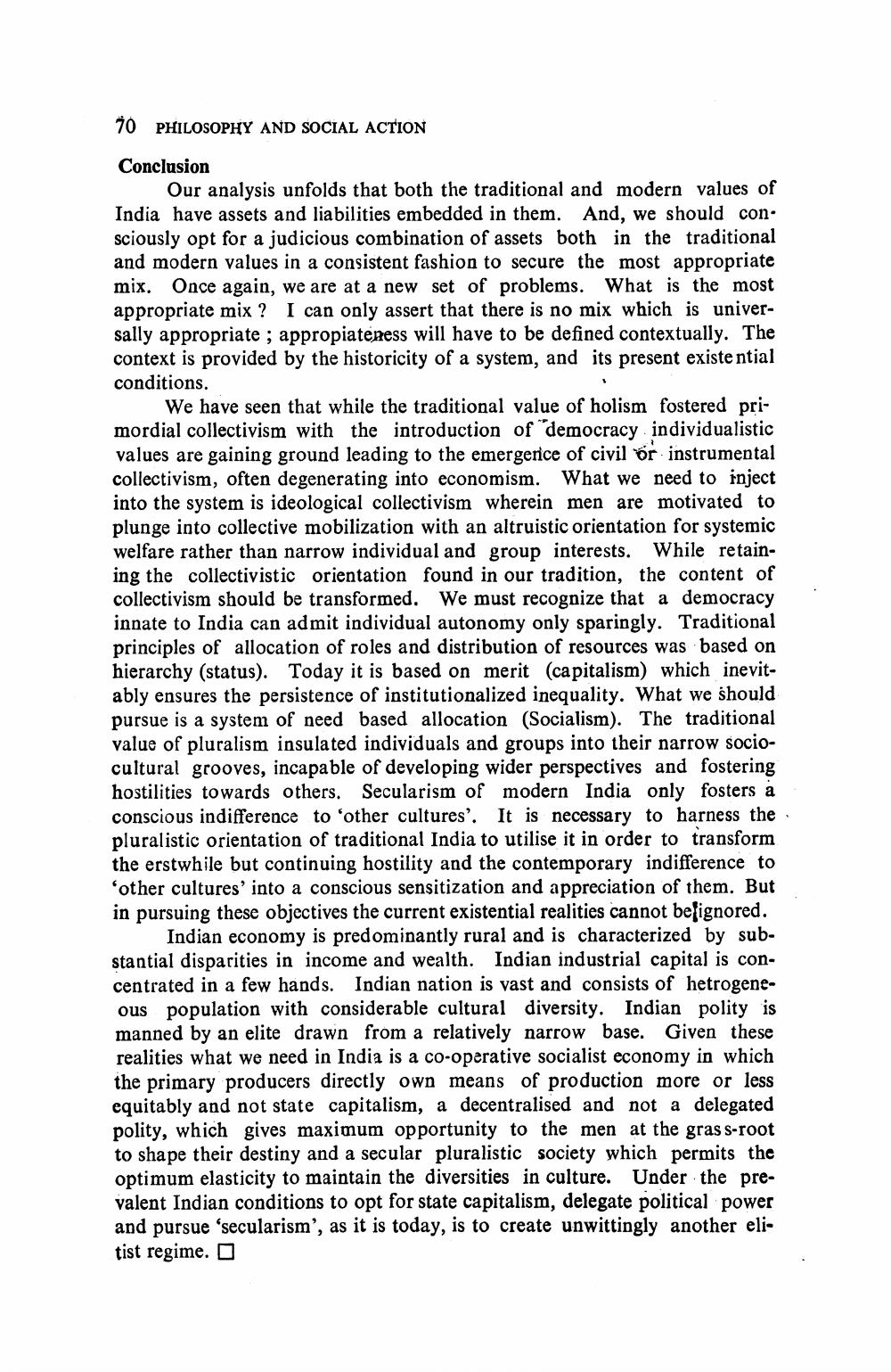________________ 70 PHILOSOPHY AND SOCIAL ACTION Conclusion Our analysis unfolds that both the traditional and modern values of India have assets and liabilities embedded in them. And, we should con. sciously opt for a judicious combination of assets both in the traditional and modern values in a consistent fashion to secure the most appropriate mix. Once again, we are at a new set of problems. What is the most appropriate mix? I can only assert that there is no mix which is universally appropriate ; appropiateness will have to be defined contextually. The context is provided by the historicity of a system, and its present existe ntial conditions. We have seen that while the traditional value of holism fostered primordial collectivism with the introduction of democracy individualistic values are gaining ground leading to the emergerice of civil or instrumental collectivism, often degenerating into economism. What we need to inject into the system is ideological collectivism wherein men are motivated to plunge into collective mobilization with an altruistic orientation for systemic welfare rather than narrow individual and group interests. While retaining the collectivistic orientation found in our tradition, the content of collectivism should be transformed. We must recognize that a democracy innate to India can admit individual autonomy only sparingly. Traditional principles of allocation of roles and distribution of resources was based on hierarchy (status). Today it is based on merit (capitalism) which inevitably ensures the persistence of institutionalized inequality. What we should pursue is a system of need based allocation (Socialism). The traditional value of pluralism insulated individuals and groups into their narrow sociocultural grooves, incapable of developing wider perspectives and fostering hostilities towards others. Secularism of modern India only fosters a conscious indifference to 'other cultures'. It is necessary to harness the pluralistic orientation of traditional India to utilise it in order to transform the erstwhile but continuing hostility and the contemporary indifference to 'other cultures' into a conscious sensitization and appreciation of them. But in pursuing these objectives the current existential realities cannot befignored. Indian economy is predominantly rural and is characterized by substantial disparities in income and wealth. Indian industrial capital is concentrated in a few hands. Indian nation is vast and consists of hetrogeneous population with considerable cultural diversity. Indian polity is manned by an elite drawn from a relatively narrow base. Given these realities what we need in India is a co-operative socialist economy in which the primary producers directly own means of production more or less equitably and not state capitalism, a decentralised and not a delegated polity, which gives maximum opportunity to the men at the grass-root to shape their destiny and a secular pluralistic society which permits the optimum elasticity to maintain the diversities in culture. Under the prevalent Indian conditions to opt for state capitalism, delegate political power and pursue 'secularism', as it is today, is to create unwittingly another elitist regime. O




